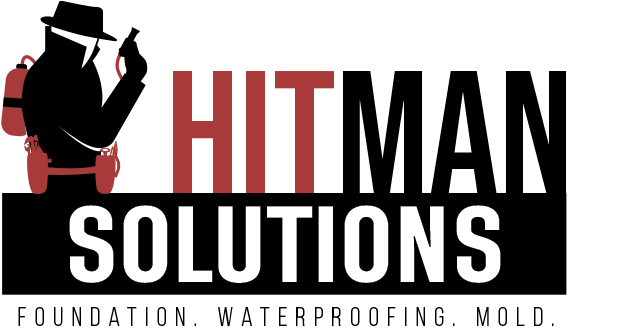Foundation Repair: The Ultimate Guide
A famous proverb says that “the best time to plant a tree was 20 years ago, and the second best time is today.” With a little adjustment, the same can be said of foundation repair: the best time to repair a damaged or failing foundation was at the onset of the problem (which hopefully was not years ago). The second best time? Today.
All too often, though, homeowners put off foundation repairs—only compounding the problem and increasing its cost. As foundation repair experts, we understand why this happens. There are a lot of unknowns, especially since some issues can be quite severe (and expensive). It can be stressful, to say the least—but it doesn’t have to be.
At Hitman Solutions, we strive to empower homeowners with thorough and cost-effective foundation repair services, because foundation problems don’t solve themselves.
Once the first signs of trouble show up, the clock starts ticking. We’ve put this article together to help you know what to expect in terms of the logistics of residential foundation repair methods, materials, costs, and more. We’ll also cover topics like common foundation problems, as well as the factors that impact repair costs.
Let’s start with an important question:
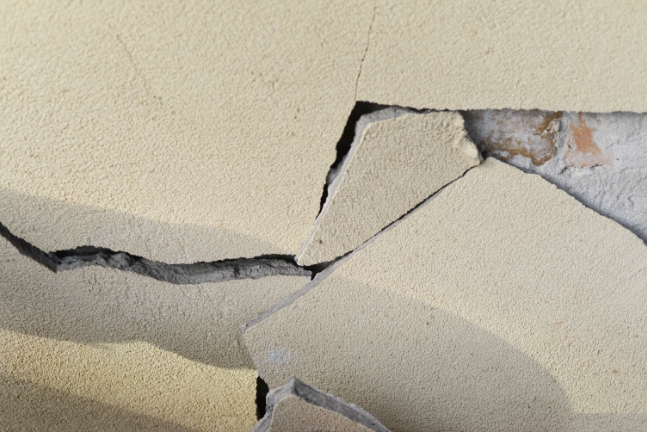
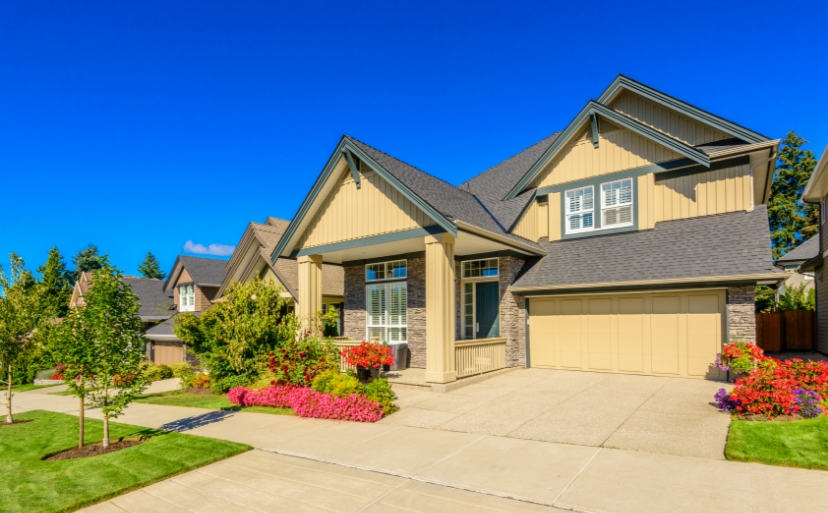
Is It Safe to Live in a House with Foundation Problems?
While foundation problems aren’t something you want to ignore, it’s generally safe to continue living in a home with one or more issues—although the scope and severity of the problem must be considered. For example, there are several minor issues that aren’t necessarily unsafe to residents, like small cracks or gaps in the foundation.
It’s important to remember that most foundations are load-bearing, so you won’t want to turn a blind eye to cracks or gaps as you observe them—especially since they can worsen over time. While some homeowners are looking for a quick fix and will fill a crack with an epoxy or caulk, this doesn’t address the issue that caused the crack in the first place. After all, that’s a bit like putting a bandage on a broken arm! That’s why it’s so important to schedule an inspection or request a consultation with a trusted foundation repair company.
Major foundation problems, however, should be treated with more urgency. These include significant foundation settling or sliding, as well as an uneven floor or bowed walls. Keep in mind that just because total foundation failure is rare it doesn’t mean problems aren’t worth addressing—sooner rather than later.
Are All Foundation Problems Fixable?
Most foundation problems can be successfully repaired—especially if they are caught early and addressed by experienced professionals. Whether you’re looking at a simple foundation crack repair or something more extensive, working with experts is the best way to ensure that the problem is fixed the right way. In addition to observable gaps and cracks (interior or exterior), additional fixable foundation problems include:

Issues with Floors
Sagging or squeaking floorboards could be relatively harmless signs of your foundation settling, or they could signal significant structural problems. Even concrete slab floors can potentially crack and cause issues.

Uneven or Bowed Walls
Typically, cabinets and counters are meant to be flush with the wall. But as your foundation shifts, you might be able to see these structures separate from the walls.

Doors and Windows that Stick
When doors or windows start acting up, it can indicate problems with the foundation. That being said, not every sticking door is necessarily a problem—in humid regions especially, it’s a natural occurrence.

Signs of Mold or Mildew
While they may not always be the direct result of foundation issues, mold and mildew form where there’s moisture. If moisture is entering your foundation, it’s a problem. Not only are mold and mildew unpleasant, they can make you sick.

Visibly Warped or Cracked Siding
Especially if your siding is otherwise in decent condition, warping or cracking can be either a sign of foundation issues—or the cause, in some cases. Be on the lookout for gaps between planks, cracks along exterior walls, space between the siding and window or door frames, and so on. The longer you ignore these issues, the more you let moisture in, threatening your home’s foundation—as well as its value.

Sinking Ground
As you would expect, a sinking foundation can be a big problem. A sinking foundation is often caused by erosion, which worsens over time if untreated. In order to prevent the type of flooding that can cause sinking ground, the area around a home is typically graded. Water management is often the most important factor with foundation issues: essentially focusing on keeping water away from the foundation. This is commonly achieved by installing a drain tile or French drain system, extending downspouts, or even re-grading the area around the foundation. As a general rule of thumb, it’s best to keep around 6” of the exterior foundation exposed.

Plumbing Issues
Would it surprise you to learn that a shifting, settling, or unlevel foundation can affect a home’s plumbing system? Unfortunately, it’s not unheard of for foundation issues to lead to plumbing problems, and vice versa. As a foundation shifts, pipes might shift and become misshapen, which can quickly get catastrophic if not fixed.
If you suspect you have foundation issues, reach out to schedule a free consultation today. Our team will assess your foundation and provide you with recommended next steps.
What Is the Most Common Foundation Repair?
Because there are so many variables involved, there is not necessarily a “most common” foundation repair—but there are a few issues that are more common than others, especially in the Midwest. Even if your foundation seems to have a “common” issue, understanding its root cause (or causes) is the first step toward determining the proper, effective solution. Problems that lead to foundation repairs often include:
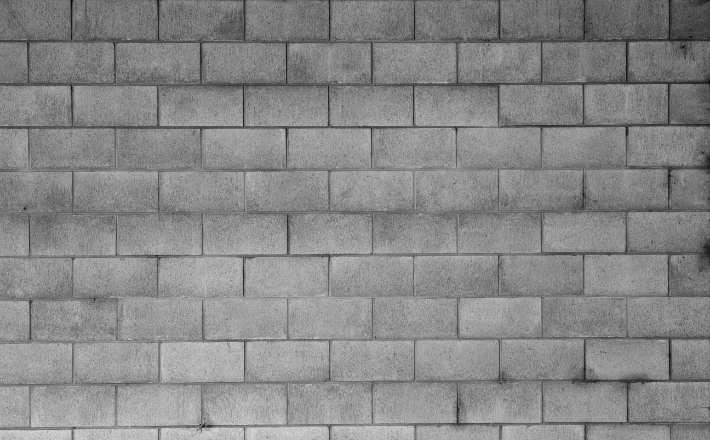
Bowing Walls
When your foundation walls are unable to withstand the pressure of forces weighing against them, they start to bow and buckle inward. At first, you may notice what look like cracks in the foundation wall—and over time, these can grow and lead to visible cracks in finished walls. From there, the walls may collapse if not fixed. The best foundation repair methods for bowing foundation walls work to stop any shifting and potentially even stabilize any impacted walls.
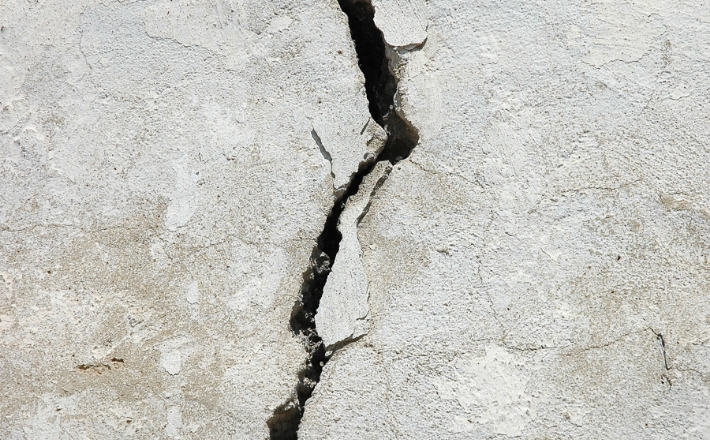
A Settling Foundation
It’s normal for houses and their foundations to settle slightly over time, but there is a point at which a settling foundation does become a problem. As the years pass, the weight of a house bears down on the soil beneath, causing issues like cracks in foundation walls or drywall, out-of-square doors and windows, or even a tilting chimney. The longer a settling foundation goes unaddressed, the less safe the home becomes—and the more expensive it will be to repair.
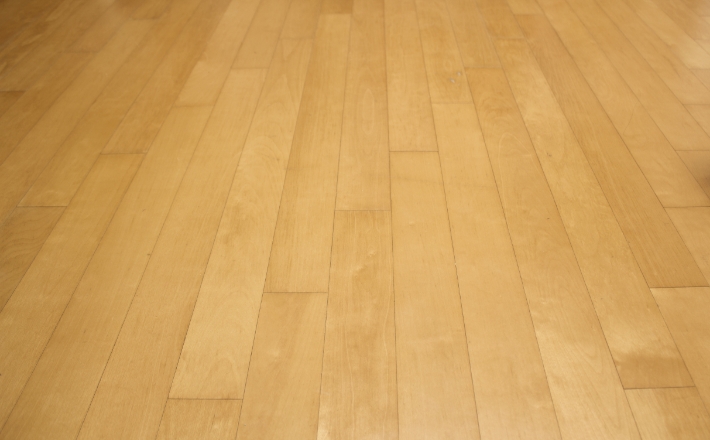
Sinking Floors Over Crawlspaces
There are a few different reasons why the floor over a crawlspace might start to sink or slope. Usually, though, a sinking floor over a crawlspace signals one of three things:
- There aren’t enough supports, in the right places, to hold the floor up.
- The existing floor supports are sinking into the soil beneath the foundation.
- The structures (typically wood) holding up the floor are rotting due to mold.
As a general rule, a crawlspace will begin to settle before you might notice the entire home (and its foundation) settling. Once you observe issues like cracked drywall, doors or windows that stick, or uneven floors, it may be time to have your foundation assessed.
Are Some Foundation Issues Unfixable?
While most foundation issues can be fixed, some are too severe to repair with traditional solutions. Of course, foundation failures don’t happen overnight. It often starts with a relatively minor sign of a problem, like a crack in the foundation which eventually allows moisture to permeate the foundation and cause more severe problems like mold and mildew, or structural rot.
A crumbling foundation is one example of an issue that may or may not be worth fixing. If caught early, the root causes can be identified and fixed, potentially saving you a great deal of time, energy, and money while keeping your home comfortable and safe. At a certain point, however, a foundation with severe crumbling becomes much more complex (and expensive) to fix. If the damage is widespread, then it can lead to more serious structural problems. In extreme cases, a home may even collapse.
This underscores the importance of having trained professionals assess your foundation and help you come up with a solution. They’ll be able to tell you the severity of the problem as well as the potential fixes (and their costs). If more than one issue is present, they’ll also provide recommendations tailored to your unique situation.
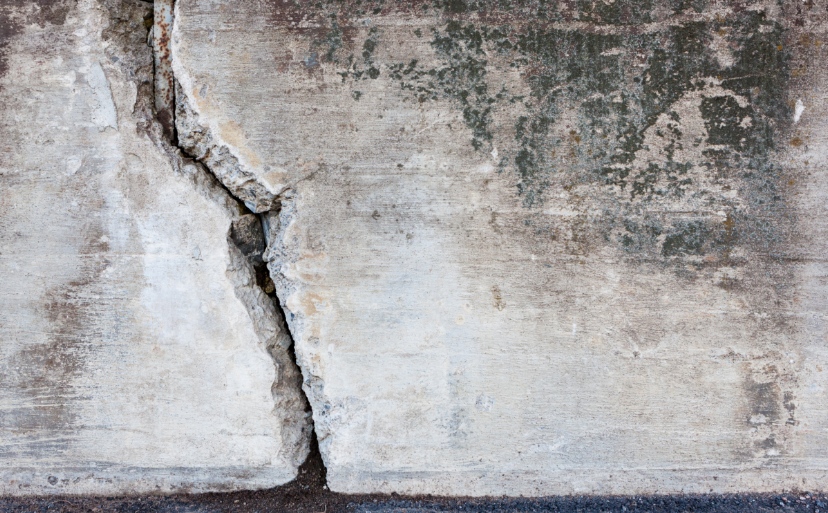
When Should You Walk Away from Foundation Problems?
Ultimately, every homeowner is going to have their own threshold of what’s worth fixing (vs. not). Whether you opt to “walk away” from a foundation problem isn’t a decision to take lightly—especially if you’ve lived in your home for a long time and aren’t already looking to relocate. Here are some signs that you might be dealing with an especially severe foundation repair scenario:
There are one or more signs of a cracking or crumbling foundation, including evidence of moisture seeping through the foundation or basement walls. This doesn’t mean you should vacate at the first sign of a problem—if these issues are detected reasonably quickly, the repairs should not be overwhelmingly expensive.
There’s evidence that foundation issues are compounding and/or worsening over time. For example, some cracks are normal, but when cracks change direction, it can indicate a problem that’s becoming severe.
The estimated costs to adequately repair the foundation exceed what you are able—or willing—to pay. That being said, if you’re unsure how to pay for foundation repair, many foundation repair contractors will work with you to develop a payment plan or offer financing options.
How Long Does Foundation Repair Take?
Assuming you hire professionals, the average job takes anywhere from a few hours to a few days, depending on the foundation repair methods and materials that are used. Some of the factors that impact how long foundation repair might take include:
- Whether there is a single issue or multiple issues.
- The scope and severity of the issue(s).
- How long the problem has gone unremedied
- The surrounding area/landscape and access to the foundation.
- The discovery of additional, related problems.
- Specific material needs.
Whether you’re trying to estimate costs or timelines the best place to start is with a free consultation from Hitman Solutions.
Can You Live In a House During Foundation Repair?
Yes, it’s typically safe to continue living in your house while the foundation is being assessed and repaired. During your consultation, you can ask the repair company about what to expect, including how long the repair(s) may take. That way, you can determine whether you want to be in the house during that time. If, for example, you know the repairs are going to take a few days and generate a lot of noise or other disruption, you can make plans to be elsewhere while the work is completed.
In most cases, homeowners continue living in their homes during the repair process, but it’s completely up to you—and it usually won’t make a difference to the crew whether you are or not, as long as they can easily reach you if needed.
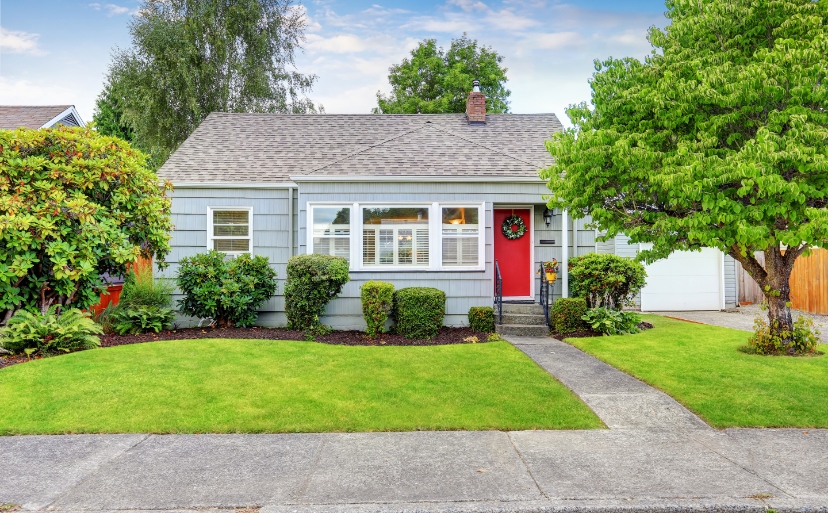
How Much Does Foundation Repair Cost?
For foundation repair, the average cost can fall anywhere between $2,500 and $7,500. As you can imagine, it really depends on who you ask, as well as the details of the job.
- Architectural Digest states that “on average, foundation repair costs around $5,000 but can range from $2,160 to $7,790,” adding that “protecting your home is worth the high price.”
- Home services company Angi provides a similar range, noting that “foundation repairs cost $5,001 on average” but can realistically range “from $2,176 to $7,826.”
- This Old House suggests a typical foundation repair cost of right around $4500, though it can be anywhere from $2,000 to $7,500. In the most extreme cases, “severe foundation problems can run you $15,000–$25,000.”
- Finally, according to one Forbes Home article, “the average cost to repair a house foundation is between $2,250 and $8,600, or an average of $5,400.” The article goes on to note that “you could spend as little as $200 for smaller projects or upwards of $52,500 for more extensive foundation repair work.”
What Factors Impact Foundation Repair Costs?
Some of the factors that play a role in foundation repair costs include your home’s size and location, the type of foundation you have, the scope and severity of your foundation’s issue(s), and the recommended fixes.
Your Home’s Size and Location
The size of your home—and where it’s located—play a significant role in foundation repair costs. Here’s how:
- Per Square Foot: You’ll often receive estimates for foundation repair cost on a per square foot basis, meaning the bigger the foundation or basement, the more it’s likely to cost to repair.
- Area-Based: If you run a search for “foundation repair near me,” you may notice that estimated costs vary depending on your zip code. There are a few reasons why this is the case, such as variations in the availability of labor as well as materials. In areas where the cost of living is generally higher, so too will be the likely repair costs. Your area’s general weather patterns also play a role, since climate impacts the type of foundation issues that can develop, as well as their severity.
- Access: From a logistical perspective, is your home and its foundation easy to access? If not, additional costs may arise, including clearing landscape elements, working around external units like HVAC systems or vents, or digging to expose the foundation so it can be carefully inspected and repaired.
The Type of Foundation
Different types of foundations will require different repair methods and materials, all of which impact cost.
- A concrete slab foundation is extremely common, and is known for being cost-effective and durable—yet the occasional foundation cement repair may be necessary over time. Problems with a concrete slab foundation often start with a single crack, which may indicate the need for repair. Otherwise, moisture will seep into the foundation and cause further issues. Typically, fixing a concrete slab foundation crack isn’t very expensive or difficult. More extensive concrete foundation repair might also involve leveling or lifting due to uneven settling or soil moving beneath the slab.
- A pier and beam foundation (or crawlspace foundation) involves either wooden beams or concrete piers and is commonly found in more humid regions due to its ventilation properties. Often, pier and beam foundations involve simple repairs, such as adjusting the beams in response to sagging or sinking. Another consideration with pier and beam foundations is that wooden components can rot or decay if moisture is present, which can lead to more costly repairs.
- Finally, a basement foundation. Most basement foundations are pretty durable since many have poured concrete or concrete blocks. This foundation type is not entirely foolproof, though; over time, small cracks may develop as the foundation settles, allowing moisture to enter. If these issues aren’t addressed within a reasonable time frame, they can lead to more significant problems, potentially requiring more extensive—and expensive—foundation repairs.
Whether you need a concrete slab, pier, and beam, or basement foundation repair, the cost can be minimized by taking timely action—before problems compound and get more expensive.
The Scope/Severity of the Problem(s)
This is perhaps the biggest variable when it comes to foundation repair costs. For example, a simple foundation crack repair likely won’t cost too much—especially if caught early—whereas a sinking foundation repair will cost significantly more since the work can be extensive. Again, it’s vital to emphasize the importance of getting issues checked out sooner rather than later. Foundation issues don’t go away; they only get more severe over time. Unsure what to expect? Schedule a free consultation with Hitman Solutions today.
The Repair Methods Used
The actual repair methods used—including any required labor, foundation repair products, and other materials—play perhaps the biggest role in what you can expect foundation repair to cost. This Old House provides a foundation repair cost calculator that breaks cost ranges down by repair method.
The least expensive repairs include:
- Foundation crack repair ($250–$800)
- Foundation jacking ($600–$1,600)
- Settling or sinking foundation repair ($500–$3,000)
By contrast, the more costly repairs include:
- Basement underpinning or piering ($1,000–$3,000 per pier)
- Foundation sealing ($2,000–$7,000)
- Foundation wall stabilization ($4,000–$12,000)
- Bowing wall repair ($4,000–$15,000)
Labor and Materials
The price of labor and materials can vary pretty widely, but are usually somewhat consistent within a given region. Foundation repair contractors will typically either charge on a per-hour basis or based on the square footage of the foundation. When budgeting for labor costs, $150-$200 is a common range for this type of service.
What Is the Most Expensive Foundation Repair?
Based on average costs, stabilizing foundation walls and repairing bowed walls are the most expensive foundation repairs. More importantly, though, the most expensive foundation repair is the one you ignore/put off. What may start as a barely visible crack could compound and ultimately become an issue that’s going to be extremely expensive to repair!
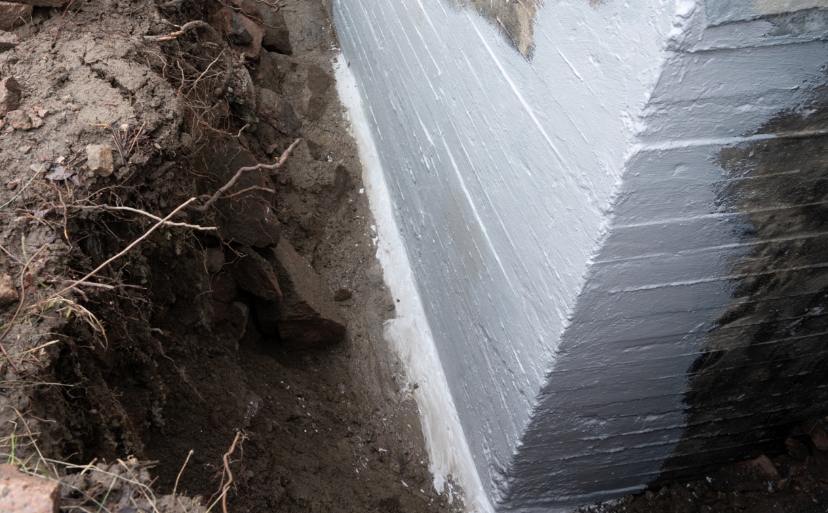
Are Foundation Repairs Worth It?
Yes, foundation repairs are almost always worth it. The only exception is a situation where the problems are simply too severe to be worth fixing. But no one should have to vacate their home due to foundation issues. If you suspect a problem, it’s important to have it checked out by professionals. That way, you can know exactly what’s wrong, and what it might cost to fix allowing you to make an informed decision about next steps.
How Does Foundation Repair Affect Home Value?
While foundation repair doesn’t directly impact your home’s value, repairing a problematic foundation will restore your home’s value, so you can sell it for a better price if and when you decide to sell. In a less literal sense, foundation repair positively impacts the value of your home by making it more comfortable for its residents.
Can You Repair a Foundation Yourself?
Unless you’re a structural engineer (which a vast majority of homeowners aren’t), DIY concrete foundation repair is not recommended. Not only is it often ineffective; but it can also make existing problems worse. Even seemingly simple fixes, like sealing up a visible crack, are more aesthetic than functional. And simply disguising the problem doesn’t solve its root cause or causes, it’s a Band-Aid solution at best.
A home’s foundation is simply too important to leave to chance, so before you simply Google how to fix foundation problems yourself, consider the following DIY disadvantages:
It can cost more, in both time and money.
You’ll typically save a little money in the short-term, but still the expenses can add up. You’ll have to buy your own materials, for example.
You could create new problems.
Without the expertise of a trusted professional, it can be difficult to know whether there are issues you’re simply unaware of—which can cost you more money down the road. And with DIY projects, there’s also the potential for mistakes.
DIY foundation repair doesn’t come with a guarantee.
By working with a professional, you can know that things will be fixed right the first time—and if they’re not, you won’t be on the hook to pay (more) to have the job finished.
Why Choose Hitman Solutions For Foundation Repair?
The best foundation repair method is one that’s performed by professionals, since that ensures a complete and cost-effective solution. When you work with Hitman Solutions, here’s what you can expect:
- A free consultation, where we’ll assess the condition of your foundation and work to identify the root cause or causes.
- A recommended course of action that outlines exactly what work should be performed, how it will be completed, and what it might cost.
- A team of experienced and courteous professionals will perform the repairs, keeping you updated on the progress.
- Once the work is completed, maintenance recommendations for preventing future problems.
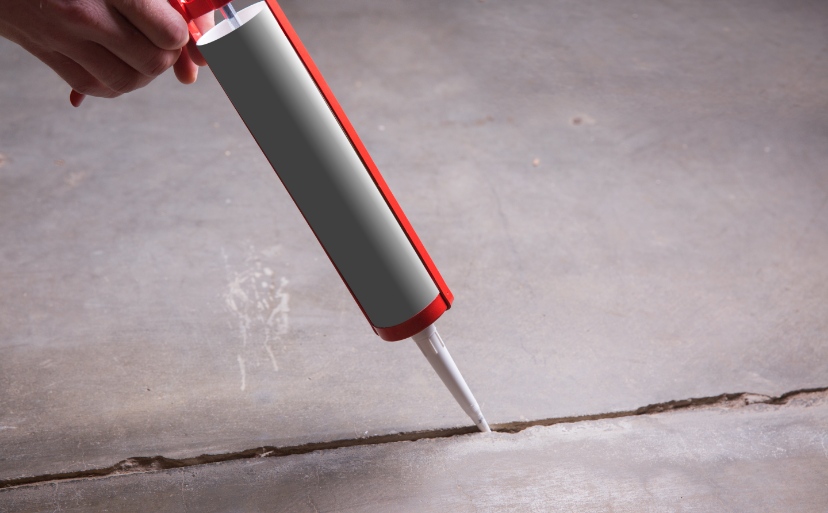
Hitman Solutions: High-Quality Foundation Repair at a Fair Price
Seeing problems with your foundation? For most homeowners, it’s not something they like to think about. Home repairs are stressful in general, and all too often it feels like it’s going to cost an arm and a leg to get things fixed. With Hitman Solutions, we provide comprehensive and cost-effective solutions to a wide range of foundation issues. Avoid the frustration of DIY repairs, and let our team work for you instead. All it takes is a single call to get the ball rolling. A better foundation awaits!
